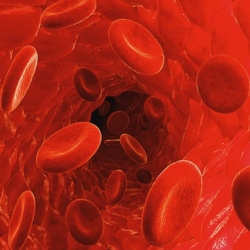
In this age of modern medical advancements, breakthroughs bordering on miraculous are nothing new. Perhaps it is this complacency in the medical field that has led the community at large to let the arrival of several new cancer treatment methods go by with inadequate fanfare. Listed below are new ways that cancer care is changing.
Artificial intelligence has gone from the stuff of science fiction movies to a legitimate foray into the scientific wormhole. Cancer-related surgeries and other procedures have become vastly easier to carry out due to a surge in AI related developments and technological breakthroughs.
Nanoscale technology has become a thing of the now, and new procedures are continually being invented to further the usefulness of this burgeoning technology. Nanoscale devices are tiny, invisible to all but the most powerful microscopes. These devices are 100-to-10,000 times smaller than human cells, making them the perfect exploratory tool to perform procedures that would have been deemed impossible by unwieldy gear.
CAR-T cell therapy, recently revealed to the medical community, is a specialized type of immunotherapy that has made it easier for surgeons and other medical experts to get to the root of the problem and promptly isolate it. This increased ease of isolation makes for a smoother procedure in general, and allows professionals to treat cancer related ailments with greater speed and precision.
In 2017, Dongeun Huh, PhD was awarded a grant by the Cancer Research Institute to allow him to perform research involving the study and use of microchips. These microchips stand to advance the cancer research community forward in ways that few developments up until this point have. It is a breakthrough in funding that can spell a bright future for cancer patients across the globe.
Liquid biopsies are yet another new addition to the growing list of cancer related innovations. This controversial new practice takes an in-depth look at changes and mutations that occur in the DNA. This in turn will lead to scientists and doctors being able to catch cancerous cells earlier than ever before.
The intelligent surgical knife (the iKnife) is finally upon us. This breakthrough in surgical procedures, developed by Zoltan Takats, found its birth place in London’s prestigious Imperial College. The iKnife is purported to be the wave of the future, particularly in the field of cancer related surgeries and procedures. The precision offered by the iKnife is said to be unparalleled.
As the scope of visibility gets down past the subatomic level, it is prudent to note that molecular cancer diagnostics are now a thing. When one deals in quarks during the day in and day out, identifying cancerous cells on the molecular level is all too easy thanks to the innovations of today and tomorrow.
It is time to reckon, as a society, with the fact that machines are almost completely able to think for the organic life form. Artificial intelligence algorithms developed by the leading minds have created an almost foolproof system of treatment diagnosis. This improvement in the AI sector aims to negate the confusion of second and third opinions, as well as incorrect diagnoses.
Thanks to the brilliant minds at University of California, San Diego School of Medicine and the equally prestigious UC San Diego Moore Cancer Center, radiology on a multi-functional level is now completely possible. This breakthrough in radiology spells nothing but good things to the throngs of afflicted masses, waiting for a cheaper and more efficient type of treatment and therapy.
It is a well known fact that clinical trials are costly and expensive, inconvenient and undesirable. In silico trials are a new breakthrough technology that aim to reduce all the unfavorable aspects of clinical trials while taking the insurmountable task of grooming the various products for maximum impact on the market.
